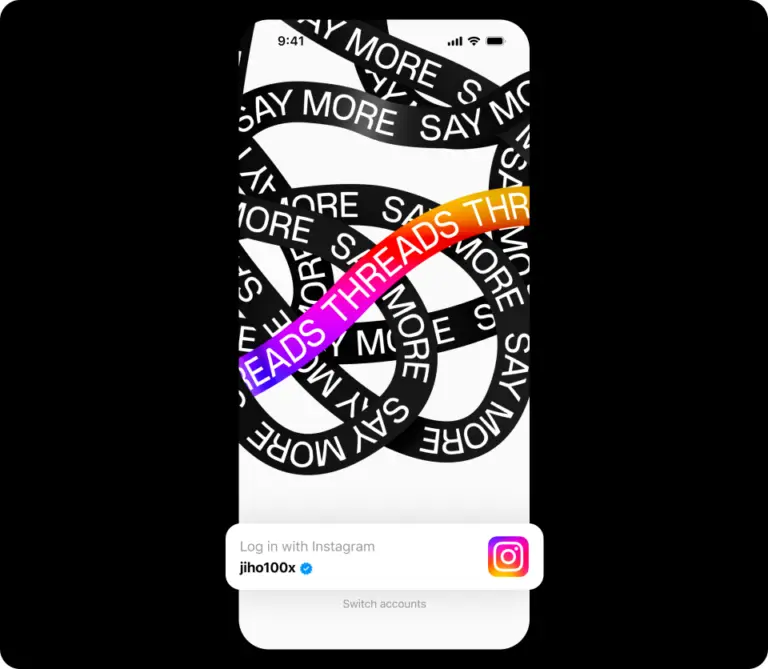What is Threads?
In short, it’s a new Twitter – without Elon Musk, but with Mark Zuckerberg.
Twitter has of course made a number of controversial decisions since Musk took over in October 2022, from reinstating many previously banned accounts to introducing paid verification for everyone who wants it. For many, both of these decisions have increased the amount of hate speech they are seeing on the app, which has made many users (and advertisers) increasingly uncomfortable. This, coupled with the recent introduction of “rate limiting” (which limits the number of tweets a user can see for free per day to around 600) has pushed more people towards alternative platforms. There have been a few would-be contenders, but Threads looks like it could be the beneficiary of all this social media tumult, with over 10 million users moving over to the platform in its first day since launch.
Why is Threads seemingly succeeding in taking on Twitter where the other apps have so far failed?
There are a number of reasons. First came Mastodon, a decentralised platform that had existed for quite a while, but it has a complex user architecture that leaves many less tech-savvy users instantly confused. Next was Hive, a still promising app but one with a far smaller marketing budget and team around it than the Metas and Twitters of this world – plus having to start with no existing audiences means that there’s little incentive for the causal user to move over. Substack, the successful newsletter management and blogging platform introduced a Notes facility earlier in the year – this at least had a strong existing userbase to draw upon but has suffered from having to combine its core service (newsletter writing) into its Twitter clone, resulting in users having their inboxes bombarded with newsletters for every follow they make on the app, which has turned many off.
Threads however overcomes many of these issues. The platform has been built by Meta (Facebook) and is being run out of its Instagram arm – this allows new users to instantly follow everyone they already have on Instagram, including many of the celebrities they already followed on Twitter. This means that regular users of The ‘Gram have to do little work to rebuild their previous following/follower lists, without missing out on many of the influencer accounts they joined Twitter for in the first place.
So is Twitter over? Has Threads won the war?
Not yet. Twitter is still very established and many people that have Twitter do not have Instagram, so these advantages are not always realised. Plus users like to have different personalities on different apps – Instagram is for documenting your life to your friends and to the world, Twitter is for getting stuck into the global conversation – in short, your Instagram followers may like your pictures, but it’s not clear yet whether they will always like your opinions…
Meta is of course in many ways just as controversial a digital overlord as Musk. The scars of Cambridge Analytica still continue to haunt the brand, and the amount of personal data that users have to agree to give over just to sign up for Threads will be a turn off for many. There are still many tests ahead before we can claim victory for The Zuck.
Could anyone else take on Twitter?
Possibly. The big unknown is still Blue Sky, a new venture by Twitter founder Jack Dorsey. This platform has been an “invite only” product for a while now, scooping up a number of celebrities as it builds enough of an influencer-base ahead of a global launch. Blue Sky, much like Mastodon, is banking on a decentralised future for social media – this will allow users to effectively retain their digital identity and move between apps while keeping their followers and followings in place. This plan is far too large a topic to explore here, but the upsides will be that users will no longer be “walled in” to one particular app for fear of having to start all over again on another platform, and some of the most negative data-harvesting practices will become functionally impossible. Interestingly, Threads touts that it wishes to move to this “fediverse” model in upcoming editions of the app – it will be interesting to see how this works for such a data-centric business like Meta.
What should I do as a business? Should I join Threads?
Every business’ social marketing strategy is different. From what we have seen so far, Threads shows enormous promise, but a new platform like this will need to be carefully studied and (no pun intended) followed. At PLMR, our digital experts will continue to stay on top of these developments in the social world, allowing us to advise clients on what platforms and strategies will work best for them in the months ahead. Get in touch with our team today at info@plmr.co.uk (or follow us on Threads and Twitter…).





